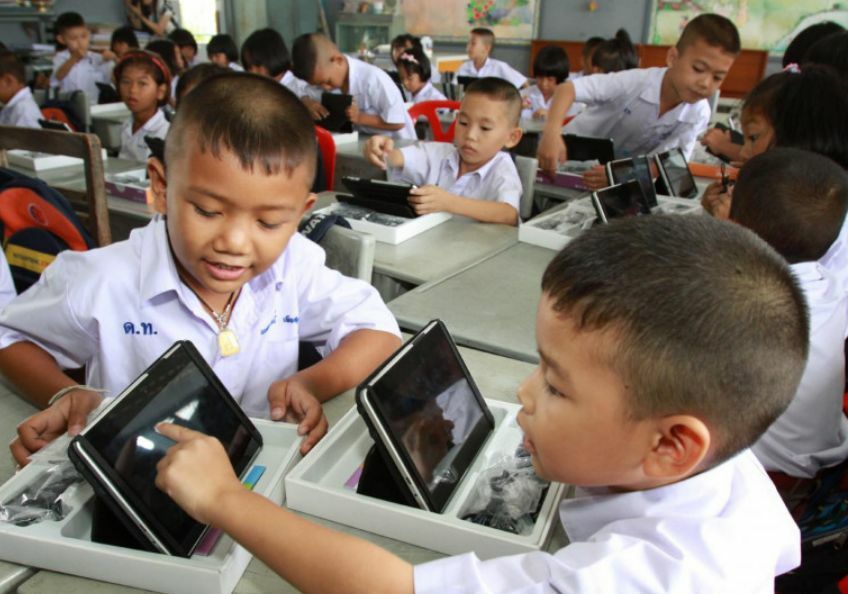Tablet talk: IT companies endorse education ministry’s digital vision, but call for a SMARTer plan

The plan of the Education Ministry to equip every student and teacher across the nation with a tablet has received support from several IT companies. They believe the tablet initiative is a step towards promoting equal educational opportunities. However, they recommend a well-thought-out strategy about device specifications, relevant courseware, and the necessary skills students should acquire.
This tablet initiative is an integral part of the ministry’s objective to facilitate “good learning with happiness” and is expected to commence with secondary schools. The “one tablet per child” programme is not a new concept, it was introduced by the Yingluck Shinawatra administration in 2011. By mid-2012, about 860,000 prathom 1 (grade 1) students had received tablets.
Nitipat Praweenwongwuthi, Acer Computer’s marketing director, pointed out that this programme has seen three significant phases. The Yingluck administration’s phase was marked by concerns about device specifications and content shortage, coupled with unprepared students and teachers. The second phase was triggered by the pandemic, which necessitated remote learning. This phase saw students becoming more familiar with online learning and completing assignments using computers.
Nitipat refers to this latest scheme as the third wave. He advised that the ministry should consider device specifications to ensure their suitability for the anticipated usage by students and teachers. Different device specifications can accommodate different purposes and uses, supporting a range of online and offline content.
He also proposed that teachers’ devices should have superior specifications compared to those for students. A key aspect to consider, Nitipat noted, is determining the digital skills students should acquire to become a competent workforce. For instance, students could be taught game development, animation, or e-sport skills.
Takon Niyomthai, head of IT business development at Com7, a SET-listed IT retail chain, believes the timing is right due to several favourable conditions, including device prices, high-speed internet availability, and digital technology familiarity among users. He suggested that teachers may need devices with larger screens and better specifications than students. If budget constraints exist, he recommended prioritising students who cannot afford these devices.
An anonymous IT veteran suggested that the education minister should initially focus on training teachers in digital skills, concentrating on the development of digital courseware. “A device is not a silver bullet,” the source said, adding that a holistic ecosystem that includes students, teachers, parents, and curriculum is needed for effective device-based learning. The source also stressed the importance of teaching students digital literacy to safeguard them from online hazards, reported Bangkok Post.
Suphachai Chearavanont, chairman of the Digital Council of Thailand, earlier stated that every child must have a computer to access knowledge to upgrade the country. Similarly, David Li, chief executive of Huawei Technologies (Thailand) Co, shared that his company is committed to promoting digital inclusion through long-term, systematic efforts in a partner ecosystem.
Follow more of TheThaiger’s latest stories on our new Facebook page HERE.
Latest Thailand News
Follow The Thaiger on Google News:


























